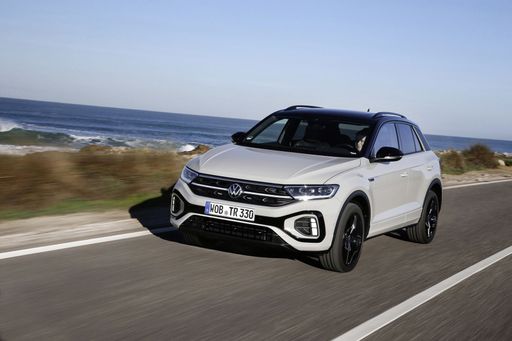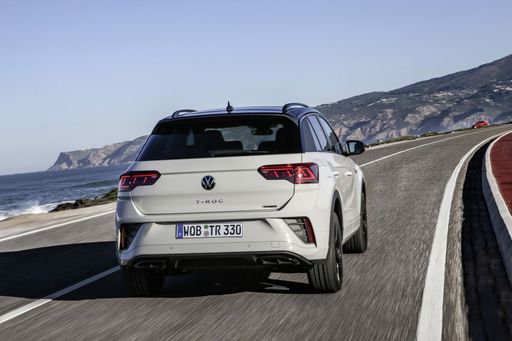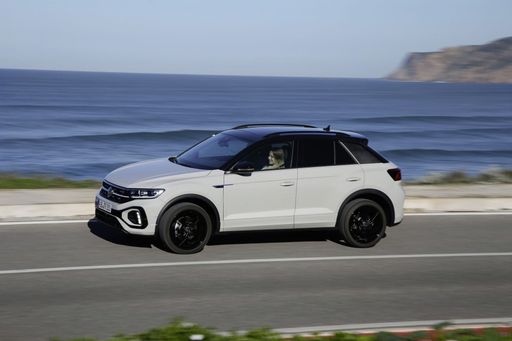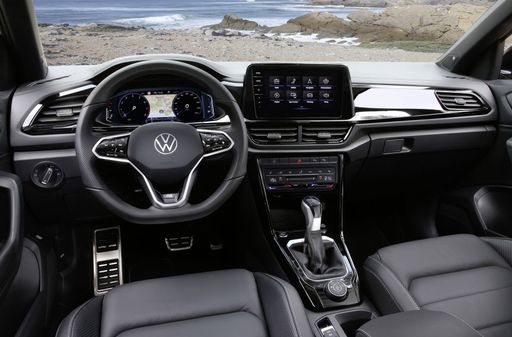Hyundai i20 vs VW T-Roc - Differences and prices compared
Costs and Efficiency:
Price and efficiency are key factors when choosing a car – and this is often where the real differences emerge.
Hyundai i20 has a decisively advantage in terms of price – it starts at 17400 £, while the VW T-Roc costs 26400 £. That’s a price difference of around 9038 £.
Fuel consumption also shows a difference: Hyundai i20 manages with 5.20 L and is therefore minimal more efficient than the VW T-Roc with 5.50 L. The difference is about 0.30 L per 100 km.
Engine and Performance:
Under the bonnet, it becomes clear which model is tuned for sportiness and which one takes the lead when you hit the accelerator.
When it comes to engine power, the VW T-Roc has a clearly perceptible edge – offering 150 HP compared to 100 HP. That’s roughly 50 HP more horsepower.
In acceleration from 0 to 100 km/h, the VW T-Roc is clearly perceptible quicker – completing the sprint in 8.90 s, while the Hyundai i20 takes 11.10 s. That’s about 2.20 s faster.
In terms of top speed, the VW T-Roc performs to a small extent better – reaching 212 km/h, while the Hyundai i20 tops out at 183 km/h. The difference is around 29 km/h.
There’s also a difference in torque: VW T-Roc pulls to a small extent stronger with 250 Nm compared to 200 Nm. That’s about 50 Nm difference.
Space and Everyday Use:
Beyond pure performance, interior space and usability matter most in daily life. This is where you see which car is more practical and versatile.
Seats: offers more seating capacity – vs .
In curb weight, Hyundai i20 is noticeable lighter – 1088 kg compared to 1465 kg. The difference is around 377 kg.
In terms of boot space, the VW T-Roc offers noticeable more room – 475 L compared to 352 L. That’s a difference of about 123 L.
In maximum load capacity, the VW T-Roc performs slightly better – up to 1350 L, which is about 185 L more than the Hyundai i20.
When it comes to payload, VW T-Roc minimal takes the win – 515 kg compared to 472 kg. That’s a difference of about 43 kg.
Who comes out on top?
Overall, the VW T-Roc shows itself to be dominates this comparison and secures the title of DriveDuel Champion.
It convinces with the more balanced overall package and proves to be the more versatile choice for everyday use.
 @ Volkswagen AG / VW Media
@ Volkswagen AG / VW Media
VW T-Roc
Costs and Consumption
View detailed analysis
Engine and Performance
View detailed analysis
Dimensions and Body
View detailed analysis
Hyundai i20
The Hyundai i20 is a cheeky small car that mixes smart styling with sensible practicality, feeling more polished and roomy than you might expect for the money. It’s an easy car to live with, offering engaging handling, a comfy cabin and useful equipment that make daily commutes and weekend errands notably less dull.
details @ Hyundai Motor Company
@ Hyundai Motor Company
 @ Hyundai Motor Company
@ Hyundai Motor Company
 @ Hyundai Motor Company
@ Hyundai Motor Company
 @ Hyundai Motor Company
@ Hyundai Motor Company
 @ Hyundai Motor Company
@ Hyundai Motor Company
VW T-Roc
The VW T-Roc mixes cheeky, coupe-like styling with the everyday sense and space of an SUV, so it looks fun without sacrificing family sense. It’s a likeable all-rounder with tidy road manners and plenty of personality, ideal if you want a car that’s practical enough for chores but entertaining enough to enjoy.
details @ Volkswagen AG / VW Media
@ Volkswagen AG / VW Media
 @ Volkswagen AG / VW Media
@ Volkswagen AG / VW Media
 @ Volkswagen AG / VW Media
@ Volkswagen AG / VW Media
 @ Volkswagen AG / VW Media
@ Volkswagen AG / VW Media
 @ Hyundai Motor Company
@ Hyundai Motor Company
|
 @ Volkswagen AG / VW Media
@ Volkswagen AG / VW Media
|
|
|
|
Costs and Consumption |
|
|---|---|
|
Price
17400 - 24000 £
|
Price
26400 - 38000 £
|
|
Consumption L/100km
5.2 - 5.3 L
|
Consumption L/100km
5.5 - 6.3 L
|
|
Consumption kWh/100km
-
|
Consumption kWh/100km
-
|
|
Electric Range
-
|
Electric Range
-
|
|
Battery Capacity
-
|
Battery Capacity
-
|
|
co2
119 - 121 g/km
|
co2
126 - 143 g/km
|
|
Fuel tank capacity
40 L
|
Fuel tank capacity
50 L
|
Dimensions and Body |
|
|---|---|
|
Body Type
Hatchback
|
Body Type
SUV
|
|
Seats
5
|
Seats
4 - 5
|
|
Doors
5
|
Doors
2 - 5
|
|
Curb weight
1088 - 1190 kg
|
Curb weight
1465 - 1539 kg
|
|
Trunk capacity
352 L
|
Trunk capacity
284 - 475 L
|
|
Length
4065 - 4075 mm
|
Length
4271 - 4373 mm
|
|
Width
1775 mm
|
Width
1811 - 1828 mm
|
|
Height
1450 - 1455 mm
|
Height
1527 - 1573 mm
|
|
Max trunk capacity
1165 L
|
Max trunk capacity
1350 L
|
|
Payload
450 - 472 kg
|
Payload
368 - 515 kg
|
Engine and Performance |
|
|---|---|
|
Engine Type
Petrol
|
Engine Type
Petrol, Petrol MHEV
|
|
Transmission
Automatic, Manuel
|
Transmission
Manuel, Automatic
|
|
Transmission Detail
Dual-Clutch Automatic, Manual Gearbox
|
Transmission Detail
Manual Gearbox, Dual-Clutch Automatic
|
|
Drive Type
Front-Wheel Drive
|
Drive Type
Front-Wheel Drive
|
|
Power HP
79 - 100 HP
|
Power HP
115 - 150 HP
|
|
Acceleration 0-100km/h
11.1 - 13.7 s
|
Acceleration 0-100km/h
8.9 - 12.3 s
|
|
Max Speed
166 - 183 km/h
|
Max Speed
187 - 212 km/h
|
|
Torque
113 - 200 Nm
|
Torque
200 - 250 Nm
|
|
Number of Cylinders
3 - 4
|
Number of Cylinders
3 - 4
|
|
Power kW
58 - 74 kW
|
Power kW
85 - 110 kW
|
|
Engine capacity
998 - 1197 cm3
|
Engine capacity
999 - 1498 cm3
|
General |
|
|---|---|
|
Model Year
2024
|
Model Year
2024 - 2025
|
|
CO2 Efficiency Class
D
|
CO2 Efficiency Class
E, D
|
|
Brand
Hyundai
|
Brand
VW
|
What drivetrain options does the Hyundai i20 have?
The Hyundai i20 is offered with Front-Wheel Drive.
The prices and data displayed are estimates based on German list prices and may vary by country. This information is not legally binding.
